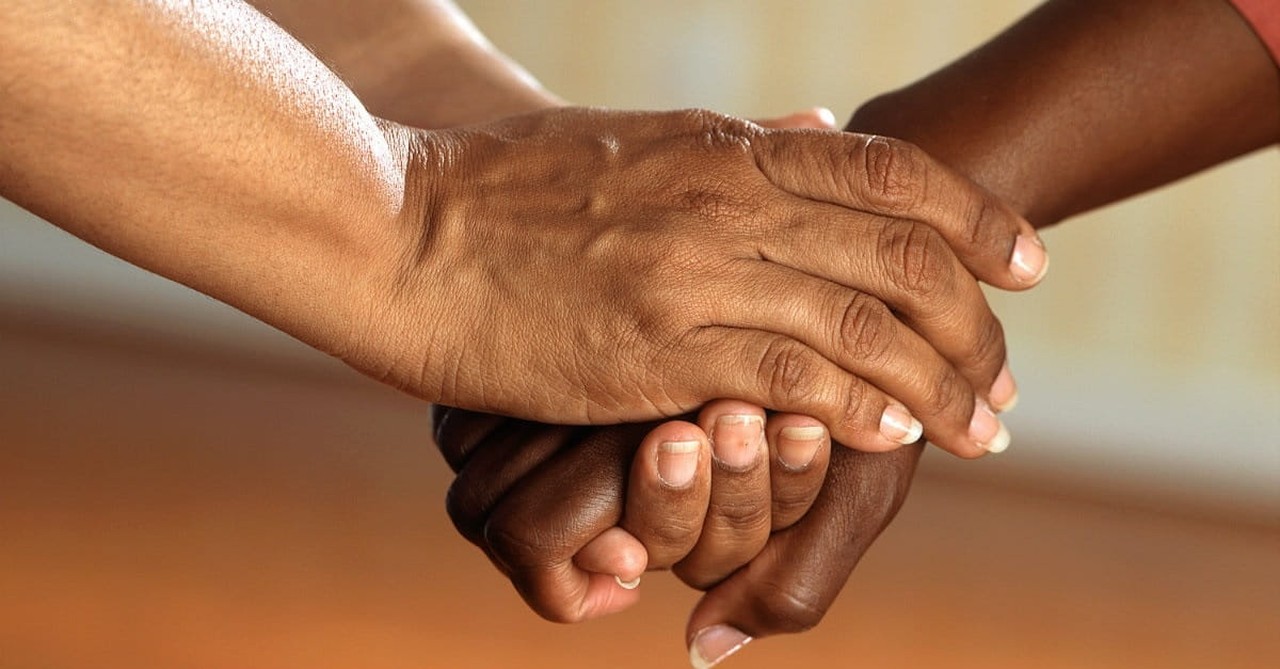10 Reasons a Prayer Request Might be Left Unspoken

I confess that I’ve found myself rolling my eyes—maybe you have, too—when the leader of a church service or Bible study asks for prayer requests. I’m not so heartless that I act this way in response to genuine prayer requests, but you may have seen this, too: Someone raises their hand, acting desperate, finally waving their hand in the air and practically jumping up and down on the pew, and then (when called upon at last) they demurely murmur, “Unspoken.”
I will presume that you’re nicer than I am and dutifully respond immediately with prayer. But while you’re doing that, I’m most likely thinking, “What’s the point? Why bother? Either tell us or don’t, because how am I supposed to pray if I don’t know what you need?!”
Well, I often find myself chastened by the Holy Spirit when this attitude surfaces. Because the truth is, the Holy Spirit will intercede for us. Romans 8:26-27 says, “In the same way, the Spirit helps us in our weakness. We do not know what we ought to pray for, but the Spirit himself intercedes for us through wordless groans. And he who searches our hearts knows the mind of the Spirit, because the Spirit intercedes for God’s people in accordance with the will of God.” In other words, we don’t need words to pray; we just need to tune in to the presence of God and offer what we can. The Holy Spirit does the rest.
So why do people have unspoken prayer requests? There are probably as many reasons as there are petitions. However, if you were to talk honestly with people, you might get one of these responses regarding their motivation.
Photo credit: ©Thinkstock/HillStreetStudios
1. It's none of your business.

1. It's none of your business.
SLIDE 1 OF 10
It’s true that some people use unspoken requests as a way to share gossip (“pray for Joanna, because even though she hasn’t told her kids yet, her husband is having an affair with their neighbor, who is a stripper—and they really need prayer”). Perhaps the motivation is relatively pure, because deep down the gossiper knows prayer is the only way to help the situation, but the salacious nature of these requests often overshadows the prayer itself.
“It’s none of your business” is the exact opposite of that. The requester may be honoring a promise to keep a situation secret, or withholding details in order to protect a friend or family member. Sometimes a story isn’t just ours to tell, and in those times, an unspoken request is the most sensitive way to handle it.
Photo credit: ©Thinkstock
2. It's personal.

2. It's personal.
SLIDE 2 OF 10
Some things are simply private. What if someone is not ready to go public—for example, they’re pregnant but had a miscarriage last time and don’t want to announce it too early? Or maybe they’re facing a legal situation and the lawyers have asked them not to discuss details. Maybe it’s embarrassing—a medical issue with a private body part, or their sex life is suffering, or, well, I don’t know because some prayer requests should remain unspoken. Sometimes there really is such a thing as TMI.
Also, not everyone in the room has earned a position of trust with the person making the request. Even if I mean well, the person next to me might gleefully repeat the information as gossip. Allow people to maintain their privacy and dignity—but genuinely offer prayers on their behalf, knowing that God knows what’s going on, even if you do not.
Photo credit: Unsplash.com
3. I need to feel like you're going through this with me.

3. I need to feel like you're going through this with me.
SLIDE 3 OF 10
Some of those who have silent requests feel alone. Walking out our faith when faced with hardships can be a long and lonely road. They may not be at liberty to share the need, but they want to know others are going alongside them on this journey, keeping them strong through prayer. It could also be that the person making the request is weary from keeping a secret or helping someone carry this particular burden.
When you hear unspoken prayer requests, perhaps you should consider the person making the request. They may be asking for prayer for someone else, but it can’t hurt to pray for them, too, to help them stay strong and faithful and wise as they walk beside someone else.
One down side of the unspoken request is that it’s harder to follow up later and see if things have changed, because you can’t exactly call and ask how the “unspoken” is doing. But you can say to someone, “Hey, I’m thinking about you and continuing to lift your unspoken prayer request.”
Photo credit: Pexels.com
4. I need attention.

4. I need attention.
SLIDE 4 OF 10
Let’s be real. Sometimes people simply want to be the center of attention. They need to feel acknowledged, valid, and involved. Not everyone has a strong support system, and the sad truth is that not everyone feels welcome in every church. In a desire to fit in, or to appear holy and involved, someone may call out an “unspoken.”
Honestly, even if that’s the case, prayer is still the appropriate response. So when you pray, don’t forget to add one on for the asker as well as for the unspoken need.
Photo credit: ©Thinkstock/LiudmylaSupynska
5. I have crazy faith and you wouldn't believe what I just asked God to do.

5. I have crazy faith and you wouldn't believe what I just asked God to do.
SLIDE 5 OF 10
I know I’m guilty sometimes of thinking that I can’t ask God for something because it’s too crazy. It would require Him to move major obstacles, perform miraculous feats. It’s too much to ask, right?
Really, though, it is not. I think many of us are afraid to ask big—but there are some people among us whose faith is so strong (or their need is so powerful) that they don’t hesitate to request almighty things of our Almighty God. Consider that this unvoiced plea may be for something gigantic and nearly impossible, and the asker doesn’t want to be brought down by knowing others don’t believe God will do it. More power to them! Pray for them, and ask God to increase your faith in what He can do.
Photo credit: Pexels.com
6. It will sound silly because it's so small.

6. It will sound silly because it's so small.
SLIDE 6 OF 10
Oftentimes, the requests you hear in group settings are big things: Someone’s dad is dying of cancer. A neighbor’s son is facing years in jail. Your friend lost her baby three weeks before her due date. Compared to these desperate situations, your request may seem trivial. Honestly, it’s okay to pray that your elementary school student gets chosen to help pass out papers in class, or that your teenager doesn’t bomb in the talent show, or that your blood sugar stays in normal limits so you can get better health insurance rates.
Still, it may feel frivolous to throw out your request among these that seem impossible. No request is too large or small for God. The Bible tells us, “Don’t worry about anything; instead, pray about everything” (Philippians 4:6), and to “pray without ceasing” (1 Thessalonians 5:17). But if the person in need of prayer is embarrassed, we shouldn’t judge that. We should simply honor their belief that God will hear their need, small or large, and do our part to help by praying for them.
Photo credit: ©Thinkstock/vadimguzhva
7. It's just easier this way.

7. It's just easier this way.
SLIDE 7 OF 10
After listening to all the long and drawn-out explanations surrounding a prayer request, complete with family history and genealogy, what the involved parties were wearing and who witnessed it and every step of the medical process that led to the diagnosis or surgery, you may not feel like spelling out the details of your own request any longer. Or maybe it’s getting late, and you know that if you don’t make it fast, the group won’t get around to praying until you have to leave for your meeting.
At the same time, you know prayer works and you want others to pray with you. What to do? In this case, the solution is simple (and short and to-the-point): “Unspoken.” Done, and moving on.
Photo credit: ©Thinkstock/shironosov
8. I don't want people to know I'm asking for myself.

8. I don't want people to know I'm asking for myself.
SLIDE 8 OF 10
Most people seem to think it’s selfish to pray for yourself, that all “good” prayer warriors are too busy praying for world peace and starving children to care about whether you get the job promotion you really need (or want) or whether your paycheck can stretch until Friday. Or maybe you have an ingrown toenail and the longer you stand there listening to prayer requests, the more it hurts.
This is when “unspoken” might be used. God is interested in all aspects of our lives and wants us to offer all of it to Him, even the small, trivial things. Even the ones that only affect us. Give your needs to God so He can help carry them, even if they’re labeled “unspoken” in a crowd.
Photo credit: ©Unsplash.com/BenWhite
9. I'm trying to be sensitive.

9. I'm trying to be sensitive.
SLIDE 9 OF 10
Your “yes” answer might cancel out someone else’s “no.” What if you’re competing for the same job? Or the marriage you’re wanting to see blessed is with the man who broke the heart of a woman on the other side of the room?
It’s not wrong to pray for something like this, but it is right to show kindness to others. If a prayer request is controversial or the answer somehow affects others around you, use wisdom in your request. In this case, it is honorable and right to keep the request under wraps.
Photo credit: ©Thinkstock/Monkey Buisness Images Ltd
10. Jesus said to pray in private, not in public.

10. Jesus said to pray in private, not in public.
SLIDE 10 OF 10
Jesus said, “When you pray, don’t be like the hypocrites who love to pray publicly on street corners and in the synagogues where everyone can see them. I tell you the truth, that is all the reward they will ever get. But when you pray, go away by yourself, shut the door behind you, and pray to your Father in private. Then your Father, who sees everything, will reward you” (Matthew 6:5-6).
I don’t think this verse was meant to prohibit us from sharing our needs with others who will carry them to God in prayer; instead, it’s a caution to people wanting to get some kind of “credit” or to look “holy.” Maybe the reason for the unspoken request isn’t that the need itself is secret or any of these other nine explanations, but that the person is trying to honor God by keeping details under wraps. This way, they don’t get rewarded with our good opinions but instead by God.
Whatever the reasons, they don’t matter as much as the way we respond. It doesn’t have to be complicated. When someone asks for prayer, we should pray. God hears it all, even that which is unspoken.
Kelly O’Dell Stanley is the author of Praying Upside Down and Designed to Pray. A graphic designer who writes (or is it a writer who designs?), she’s also a redhead who’s pretty good at controlling her temper, a believer in doing everything to excess, and a professional wrestler of doubt and faith. She offers free prayer prompt calendars at kellyostanley.com and calls small-town Indiana her home.
Photo credit: ©Thinkstock/ipopba
Originally published July 31, 2017.









